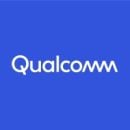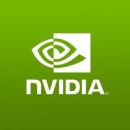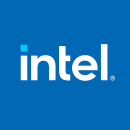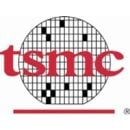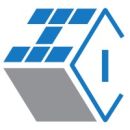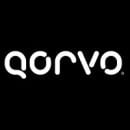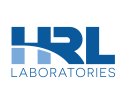Although semiconductors have long been essential hardware in the tech industry, their importance has skyrocketed in recent years thanks to the artificial intelligence boom. Chip developers and manufacturers are now some of the largest companies in the world, developing new products that are highly optimized to train the large language models that everything from our favorite chatbots to image generators.
From the lithography machines that etch circuits onto silicon chips to the foundries manufacturing the advanced AI semiconductors, these are some of the largest companies that serve as the backbone to the AI industry.
Semiconductor Companies to Know
- Nvidia
- TSMC
- AMD
- Intel
- Qualcomm
- Broadcom
Semiconductor Companies to Know
Location: San Diego, California
Business Type: Fabless semiconductor manufacturer
Market Cap: $163.09 billion
Qualcomm makes semiconductors and components for a variety of industries. The company has had a notable impact on mobile and smartphone applications with its Snapdragon 5G platform. Unlike most AI chip companies, Qualcomm develops AI-optimized hardware found in consumer devices — not just data centers. For example, some of its products are found in Microsoft's Copilot+ PCs and in high-end smartphones.
Location: Saxonburg, Pennsylvania
Business Type: Integrated device manufacturer
Market Cap: $34.71 billion
Coherent Corp., formerly II-VI Incorporated, produces engineered materials, optoelectronic components and optical systems, developing integrated solutions for the communications, aerospace, defense, life sciences and consumer electronics industries. From producing LiDAR automotive components and optical amplifiers for submarine communication to refining rare metals for use in high-pressure applications, Coherent enables continued research across a range of industries.
Location: Santa Clara, California
Business Type: Wafer fabrication equipment supplier
Market Cap: $269.64 billion
Applied Materials’ provides services and materials for the manufacturing of semiconductor chips that are used in electronics like iPhones, televisions and cars. The company said it invests in digital infrastructure to shorten product development cycles.
Location: Dallas, Texas
Business Type: Integrated device manufacturer
Market Cap: $194.89 billion
Texas Instruments designs, manufactures and sells analog and embedded processing chips. The company offers over 80,000 products for applications in the aerospace, automotive, industrial and personal electronics industries. Texas Instruments runs over 15 manufacturing facilities worldwide, which work to manufacture billions of the company’s semiconductors every year.
Location: Bristol, England
Business Type: AI compute stack designer and developer
Market Cap: Privately held
Graphcore is a semiconductor company that focuses on designing AI compute silicon and the systems required to deploy it at scale. Its work includes processor architecture, silicon design, bring-up, validation and integration into full server and data center platforms. The company’s semiconductor teams work closely with systems, firmware and software engineers to ensure performance, reliability and scalability.
Location: Palo Alto, California
Business Type: Fabless semiconductor manufacturer
Market Cap: $1.571 billion
Broadcom designs, develops and supplies semiconductor technology and infrastructure software solutions, covering a range of enterprise storage, networking and communications use cases. The company’s line of products include storage adapters, wireless embedded solutions, RF components, processors, custom silicon devices and motion control encoders, helping power massive businesses across a range of industries. And it recently partnered with OpenAI to co-develop custom AI chips.
Location: Milpitas, California
Business Type: Wafer fabrication equipment manufacturer
Market Cap: $214.37 billion
KLA is an equipment and services semiconductor company that operates across industries like IoT, automotive and AI. The company offers process control and process-enabling solutions for manufacturing wafers and reticles. KLA aims to improve the speed of devices through its extensive chip manufacturing sector that works in the data analytics and metrology industries.
Location: Wilmington, Massachusetts
Business Type: Integrated device manufacturer
Market Cap: $154.86 billion
Analog Devices creates chip-powered technologies for industries like healthcare, aerospace, automotive and communications. The company’s iButton devices contain silicon chips that can withstand physical wear and tear, making these devices even more durable. Analog Devices also produces processors, microcontrollers and micro-electromechanical systems (MEMS) sensors that measure variables like tilt, acceleration and vibration.
Location: Durham, North Carolina
Business Type: Wide-bandgap semiconductor manufacturing
Market Cap: $165 billion
Wolfspeed, formerly Cree, is a global leader in silicon carbide technology and production. Its products provide services for industries ranging from electric vehicles to renewable energy and storage to aerospace and defense.
Location: Santa Clara, California
Business Type: Fabless semiconductor manufacturer
Market Cap: $4.65 trillion
Nvidia is a hardware and AI company known for its creation of the graphics processing unit in 1999. Since then, the company has become one of the most valuable companies in the world by developing some of the most sought-after AI semiconductors, including its Blackwell and Vera Rubin chip. The company’s specialized AI semiconductors have reportedly helped it control 85 percent of the AI CPU market.
Location: Boise, Idaho
Business Type: Semiconductor design and manufacturing
Market Cap: $490 billion
Micron Technology deals with memory — computer memory and data storage. It creates products for companies that produce smartphones and also memory and storage consumer products. Micron pioneered a way to store ever-growing amounts of data in a cost-effective way.
Location: San Jose, California
Business Type: Semiconductor testing equipment manufacturer
Market Cap: $120.48 billion
In the semiconductor industry, Advantest is a large manufacturer of automatic measuring equipment. It also designs the test systems needed to develop and manufacture advanced computer and telecoms products. The company said the lineup includes SoC and memory test systems, test handler, device interface, test cell and automation solutions.
Location: San Jose, California
Business Type: System on chip designer
Market Cap: $86.83 billion
Cadence Design Systems produces all-encompassing software for IC and IP design that, according to the company, enhance capabilities throughout the 5G, automotive, aerospace, defense and AI industries. The company’s custom, analog and RF IC solutions bring streamlining automation functions to circuit design, circuit simulation, layout design, layout verification and more, with an IP platform available to customize app-driven SoC designs.
Location: Santa Clara, California
Business Type: Semiconductor design and manufacturing
Market Cap: $244 billion
Intel is used in a variety of sectors, ranging from hospitality and retail to sports, healthcare, financial services and transportation. Its product lineup includes its Intel Core and Xeon chips, chipsets for mobile, desktop, server and embedded use. But beginning in 2019, the U.S.-based company began developing AI chips. The Gaudi 3, its current and most advanced chip for data centers, provides a neural processing unit (NPU) for optimizing AI tasks.
Location: Hsinchu, Taiwan
Business Type: Foundry
Market Cap: $1.78 trillion
TSMC (Taiwan Semiconductor Manufacturing Company) is a manufacturer of semiconductors for high-performance computing, IoT, automotive and consumer electronic applications. Along with creating its own integrated circuits, TSMC operates multiple semiconductor foundries and offers engineering services for clients across Asia, Europe and North America. It is the manufacturer for companies like Nvidia, Apple and AMD.
Location: Cambridge, United Kingdom
Business Type: Semiconductor IP licensing
Market Cap: $116.30 billion
Arm builds semiconductors that cater to the demands of different sectors, ranging from networking to artificial intelligence. The company’s lineup of central processing units (CPUs) supports smartphones, tablets and PCs, among other devices. Meanwhile, Arm’s Neoverse CPUs have the capacity to handle tasks that require more power and memory, making them ideal for AI, machine learning and cloud applications.
Location: Veldhoven, Netherlands
Business Type: Photolithography machine manufacturer
Market Cap: $553 billion
ASML is a global manufacturer of chip-making hardware, software and services. It aims to provide customers with the equipment necessary to mass-produce microchips and semiconductor solutions. ASML specializes in designing and building lithography systems, machines that use light to print patterns on computer chips.
Location: San Jose, California
Business Type: Fabless semiconductor manufacturer
Market Cap: Privately held
InnoPhase IoT is a fabless semiconductor company that has set out to redefine how wireless solutions are processed, helping the IoT industry move seamlessly into the future. The company’s technology reduces the power consumption requirements of Wi-Fi and radio units. It allows devices that formerly could not be battery-powered due to massive power draw to become portable, and also increases the chargeable lifespan of many devices from hours to weeks.
Location: Greensboro, North Carolina
Business Type: Integrated device manufacturer
Market Cap: $7.17 billion
Qorvo uses its radio frequency and microchip products to increase connectivity across the globe. Its chips are used across several applications and fields including defense and aerospace, Wi-Fi connectivity, automotive and wireless infrastructure. The company offers locations in 17 different countries and its products can be bought online.
Location: Santa Clara, California
Business Type: Fabless semiconductor manufacturer
Market Cap: $409 billion
AMD (Advanced Micro Devices), well-known in the gaming hardware world, produces internal processors, high-powered graphic systems and specialized gaming products for multiple use cases that make the most of silicon, hardware and software technologies.
Location: San Jose, California
Business Type: Integrated device manufacturer
Market Cap: $756.15 billion
Samsung Semiconductor, a subsidiary of Samsung Electronics, develops semiconductors for use in business and consumer electronics. Its solutions apply to technologies like data centers, automotive and IoT to mobile and wearable devices. The company manufactures its semiconductor chips using its in-house foundry, Samsung Foundry. Some of Samsung’s most advanced AI chips are found in mobile and wearable devices, and enable on-device AI processing for enhanced security.
Location: Santa Clara, California
Business Type: Fabless semiconductor manufacturer
Market Cap: $71.82 billion
Marvell designs silicon technologies that expand capabilities in the automotive, enterprise and cloud industries, driven by comprehensive research and development when creating processor, switch, SSD and Ethernet products. The company has been involved in launching advanced data centers, connecting automotive networking technology through a centralized Ethernet and installing smart 5G infrastructure.
Location: Freemont, California
Business Type: Wafer fabrication equipment manufacturer
Market Cap: $302.68 billion
Lam Research specializes in crafting microchip components, including transistors, interconnects, memory cells and packaging. A team of scientists and engineers start by creating insulating and conductive materials for microchips. Next, they etch finer details onto a chip by manipulating its ions. After the process is complete, Lam Research’s personnel remove excess materials and clean the wafer to prepare it for use.
Location: Austin, Texas
Business Type: Integrated device manufacturer
Market Cap: $60.53 billion
NXP Semiconductors designs a range of semiconductor products, including microprocessor chips (MPUs) and microcontroller units (MCUs). While the company places an emphasis on the automotive industry, its solutions can also be tailored to areas like wearables, communication infrastructure and smart technology environments. In partnership with TSMC-backed Vanguard, NXP is funding a wafer plant in Singapore.
Location: Malibu, California
Business Type: Semiconductor research and foundry
Market Cap: Privately held
HRL Laboratories creates innovative radio frequency, millimeter-wave and electro-optical sensor subsystems and components. Its new high-frequency technologies reduce system size and weight by enabling smaller passives and apertures. The research and development laboratory provides engineering, prototyping and production services that involve semiconductor and microfabrication technologies.
Frequently Asked Questions
Who is the biggest semiconductor company?
NVIDIA is the largest semiconductor company based on market capitalization.
What are the top five semiconductor companies in the U.S.?
Along with NVIDIA, other major semiconductor companies in the U.S. include Intel, AMD, Broadcom and Micron Technology.
What does a semiconductor company do?
Semiconductor companies create various semiconductor technologies, including memory chips, microprocessors, graphic systems and integrated circuits. These can be used in industries like automotive, aerospace, energy and manufacturing.
Does the U.S. produce semiconductors?
The United States makes 12 percent of the world’s semiconductors, according to the U.S. Council on Foreign Relations.

